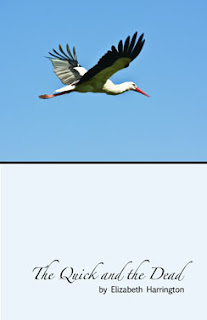It was a wonderful evening that, as Nemo put it, focused on the right thing, the work itself. Bob's book Lightly in the Good of Day collects poems written over the course of a decade. They are about family and friends--real and imaginary--nature, art and the trying conditions of existence. The turnout at Cornelia Street Cafe was strong. There was only standing room when the open-mic began. Valerie Mendelson, the painter of the landscape that appears on the book cover, came with her husband, JF. For the feature, the readers, Jane Ormerod, Adriana Scorpino, R. Nemo Hill, and Thomas Fucaloro, chose poems from the book that matched perfectly their very different reading styles. Jane read "In That Petal Flesh," Adriana read "Going Inside--Especially To Feel," Nemo read "Man, Can They," "Inside Your Expensive Watch"and "After Such Fall", and Thomas read "Take This Rose." The No Chance Ensemble, consisting of vocalists Bruce a...




